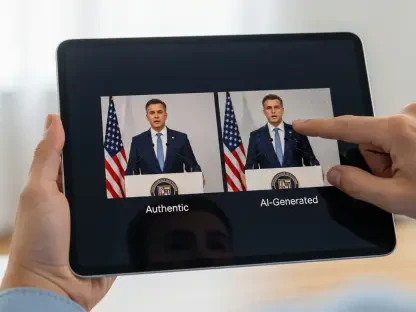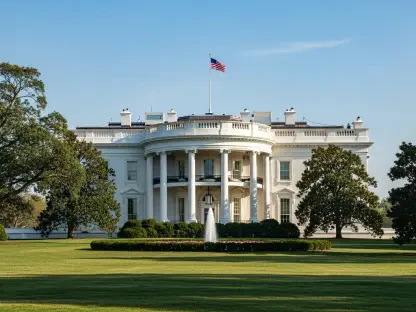Deep within Colorado’s political arena, a heated controversy unfolds over whether the state legislature’s latest tax policies adhere to the Taxpayers Bill of Rights (TABOR), a constitutional amendment designed to protect taxpayers by requiring voter approval for any measure that increases state revenue. This debate, brought into sharp focus by Mark Hillman’s Capitol Review, scrutinizes the Colorado General Assembly’s decisions during a recent August special session to push through bills aimed at boosting tax income. Hillman, with his background as a former Senate Majority Leader and State Treasurer, casts a critical eye on these actions, arguing they may infringe upon TABOR’s strict guidelines. The clash pits the state’s pressing fiscal needs against the fundamental rights of taxpayers to have a say in revenue-raising measures, creating a complex battleground of legislative strategy, judicial interpretation, and constitutional principles that demands closer examination.
Examining Legislative Strategies
The core of this issue lies in the specifics of two bills passed during the special session, which together aim to generate substantial revenue without seeking voter consent. One bill targets a federal 20 percent business income deduction, reversing it to raise an estimated $97 million in the 2025-26 fiscal year, while the other limits a tax deduction for insurance companies employing Colorado workers, projecting an additional $90 million in revenue. Lawmakers defend these actions by asserting they do not constitute formal “tax policy changes” under TABOR, instead presenting the financial gains as secondary to other policy objectives. Yet, skepticism arises when considering public remarks from key figures, including Governor Jared Polis, which seem to acknowledge a direct intent to address budget shortfalls, challenging the narrative of incidental impact and raising questions about the alignment of these measures with constitutional requirements.
Further scrutiny reveals a deeper tension between the stated goals of these legislative moves and their practical implications for Colorado’s taxpayers. Hillman’s analysis suggests that the framing of revenue increases as mere byproducts of policy adjustments may be a strategic maneuver to bypass TABOR’s voter-approval mandate. This approach not only tests the boundaries of legal interpretation but also risks setting a precedent for future fiscal policies that could sidestep public input. The significant sums projected from these bills underscore the stakes involved, as they represent a notable shift in state revenue without the direct consent that TABOR was designed to ensure, prompting a broader discussion on whether such legislative creativity undermines the spirit of taxpayer protections embedded in Colorado’s constitution.
Judicial Oversight and Legal Interpretations
Turning to the judiciary, the Colorado Supreme Court’s rulings provide critical context for evaluating the legislature’s recent actions. A 2018 decision in TABOR Foundation vs. RTD permitted small, incidental revenue increases without voter approval, but included a cautionary note against using this exception for deliberate revenue-raising efforts disguised as minor adjustments. More recently, a unanimous ruling invalidated tax increases by the City of Lakewood, rejecting the argument that a non-revenue purpose could justify clear revenue generation. These precedents suggest a judicial inclination to uphold TABOR’s intent, casting doubt on the legality of the current tax bills and hinting at potential challenges if these measures are contested in court, as they appear to prioritize fiscal gain over constitutional compliance.
Delving deeper into these judicial perspectives, it becomes evident that the courts are increasingly wary of legislative attempts to exploit ambiguities in TABOR’s language. Hillman emphasizes that the Lakewood decision serves as a stern reminder to lawmakers that obvious intent to raise revenue cannot be masked by alternative justifications. This judicial stance reinforces the principle that taxpayer consent remains paramount, even as the state grapples with budgetary constraints. The interplay between past rulings and the current legislative landscape highlights a growing friction, where the judiciary may be poised to act as a check against overreach, potentially reshaping how Colorado balances fiscal policy with constitutional mandates in future legal battles over TABOR’s scope and application.
Challenges of Transparency and Motive
Transparency, or the lack thereof, emerges as a significant concern in this ongoing debate over tax policy. Public statements from Governor Polis, who initiated the special session to address what was described as a “revenue shortfall,” alongside comments from prominent legislators like Representative Emily Sirota and House Speaker Julie McCluskie, openly position these bills as adjustments to tax policy. Such rhetoric stands in stark contrast to the official legislative declarations that downplay the revenue impact as incidental, suggesting a calculated effort to navigate around TABOR’s restrictions. This discrepancy raises serious doubts about the integrity of the process and whether the true intent behind these measures aligns with the constitutional safeguards meant to protect taxpayers from unilateral revenue hikes.
Moreover, the apparent contradiction between public messaging and legislative rationale fuels concerns about the erosion of trust between the government and the public. Hillman’s critique points to a pattern where the language used in official channels diverges from candid admissions of fiscal strategy, potentially weakening the legal foundation of these bills under TABOR scrutiny. This issue of motive extends beyond mere semantics, touching on the broader principle of accountability in governance. If the intent to raise revenue is as explicit as public statements imply, the absence of voter approval could be seen as a direct challenge to the democratic underpinnings of TABOR, urging a reevaluation of how transparency is maintained in Colorado’s legislative processes amidst pressing financial demands.
Wider Impacts on State and Local Governance
Looking beyond the state capitol, the implications of these tax policies ripple through Colorado’s local governments and school districts, raising questions about the precedent they might set. If the legislature’s approach of framing significant revenue increases as incidental holds, it could embolden other entities to adopt similar tactics, extending taxes or reducing deductions without seeking voter consent. Hillman warns of a slippery slope where the consistent generation of funds through such measures becomes normalized, challenging the very definition of “incidental” under TABOR. This potential shift threatens to dilute the amendment’s purpose, creating a governance environment where taxpayer input is increasingly sidelined in favor of fiscal expediency across multiple levels of administration.
Additionally, this situation underscores a fundamental divide in Colorado’s approach to reconciling fiscal needs with constitutional protections. The possibility that local entities might mirror the state’s strategy amplifies the stakes, as it could lead to a widespread reinterpretation of TABOR that prioritizes revenue over rights. Hillman’s analysis suggests that without clear judicial or legislative boundaries, the risk of eroding taxpayer safeguards grows, potentially transforming how governance operates at every level. As this debate unfolds, it becomes crucial to consider whether the current trajectory of tax policy innovation respects the balance between meeting budgetary demands and upholding the democratic principles enshrined in Colorado’s legal framework, ensuring that the voices of taxpayers remain central to fiscal decisions.
Reflecting on Fiscal and Constitutional Balance
Reflecting on this intricate issue, it is evident that the Colorado General Assembly’s push to increase revenue through targeted tax bills has sparked significant legal and ethical questions under TABOR’s framework. The judicial rebukes, particularly the Lakewood ruling, have served as a cautionary tale for lawmakers, indicating that their strategies might not withstand legal challenges. Moving forward, a critical step lies in fostering clearer guidelines through potential litigation or legislative reform to define when voter approval is required. Encouraging greater transparency in public discourse around fiscal intent could also help rebuild trust. Ultimately, resolving this tension between budgetary needs and constitutional protections demands a collaborative effort to ensure that taxpayer rights remain a cornerstone of Colorado’s governance, guiding future policies with both legal clarity and public accountability in mind.









